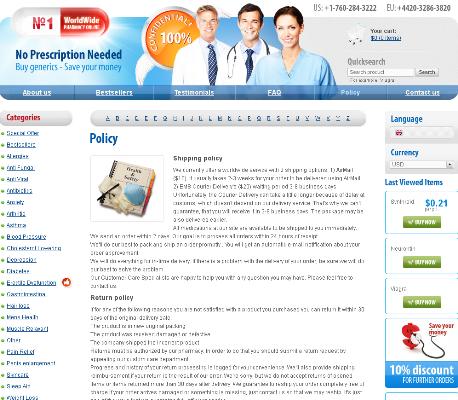Amoxil and Alcohol: Interactions You Need to Avoid
What Is Amoxil: Uses and Importance
Amoxil, the brand name for amoxicillin, is a widely used antibiotic crucial for treating various bacterial infections. Some of its primary uses include tackling respiratory infections, urinary tract infections, ear infections, and even certain types of skin infections. Recognized for its effectiveness, Amoxil plays a vital role in preventing the spread of bacterial ailments, thereby safeguarding public health. However, it’s important to understand how Amoxil operates within the body and why its proper usage is indispensable for optimal health outcomes.
| Common Uses | Importance |
|---|---|
| Respiratory Infections | Helps prevent serious complications |
| Urinary Tract Infections | Reduces symptoms and prevents spread |
| Ear Infections | Improves hearing and ear health |
| Skin Infections | Promotes faster healing |
Taking Amoxil according to your healthcare provider’s recommendations is crucial for its effectiveness. When used as prescribed, it can be a powerful tool in the fight against bacterial infections, contributing to overall well-being and reducing the risk of complications.
How Alcohol Affects Your Body

When you consume alcohol, it can impact various systems in your body. Firstly, alcohol is metabolized by the liver, the same organ responsible for breaking down medications like Amoxil. This dual task can strain the liver, reducing its efficiency. Additionally, alcohol alters your immune system, making it less effective in fighting off infections. This weakened state can hinder your body's ability to respond to antibiotics. Alcohol can also lead to dehydration and disrupt sleep patterns, further complicating your recovery process.
Mixing Alcohol with Amoxicillin: Is It Safe?
When taking Amoxil, it's crucial to consider how alcohol might impact your treatment. Both substances are metabolized by the liver, wich could place extra strain on this vital organ. Drinking while on Amoxil may not only reduce the effectiveness of the antibiotic but also increase the risk of liver-related issues.
Additionally, alcohol can weaken your immune system, making it harder for your body to fight off infections. This combined effect can delay your recovery process. Even moderate drinking can exacerbate side effects like dizziness and upset stomach, making your experience more uncomfortable.
For those who are tempted to have a drink while on Amoxil, it's important to weigh the risks carefully. Consider how much you value a quickened recovery and whether that social drink is worth the potential complications. It may be better to stay alcohol-free until your course of medication is complete.
Common Side Effects from Combining Alcohol and Amoxil

Mixing alcohol with Amoxil can lead to a variety of common side effects that might make you rethink that glass of wine. One of the immediate effects is an upset stomach, a double whammy when dealing with an infection. Gastrointestinal issues, such as nausea and vomiting, can intensify, leaving you feeling worse than before. Occassionally, you might even experience headaches and dizziness, which can occur when the body is already under the stress of fighting off bacteria. These side effects may seem minuscule at first but can negatively impact your ability to recover swiftly.
Another significant concern is how both substances affect your central nervous system. Alcohol is known to impair motor skills and cognitive function, and when combined with Amoxil, these impairments can be exaggerated. You may find yourself feeling overly tired and lethargic, which isn't ideal when you need your full faculties. Additionally, alcohol can interfere with the effectiveness of Amoxil, making it harder for your body to fight off the infection. Hence, it is crucial to carefully consider these interactions to maintain your overall health and ensure a speedy recovery.
Real-life Risks: Severe Reactions to Avoid
When mixing Amoxil and alcohol, there are real-life risks you should be aware of. Severe reactions can include a heightened sensitivity to alcohol, where even small quantities can lead to adverse effects. Nausea, vomiting, and dizziness may become more prominent, making daily activities challenging.
One particularly dangerous scenario involves an increased risk of dehydration. Alcohol is a diuretic, and when combined with Amoxil, this effect can be amplified, leading to severe dehydration. This can significantly affect your kidneys, potentially causing long-term damage.
Furthermore, while adverse reactions to Amoxil and alcohol are occasional, they can be severe. Medical emergencies have occurred in some cases, necessitating immediate attention, untill treatment is received. Avoid such serious risks by steering clear of this combination.
| Risk Factor | Potential Outcome |
|---|---|
| Heightened Sensitivity | Nausea, vomiting, dizziness |
| Dehydration | Kidney damage |
| Severe Reactions | Medical emergencies |
Expert Tips for Safe Antibiotic Use
When taking Amoxil, proper usage is key to successful treatment. Firstly, follow your doctor’s dosage instructions precisely; this ensures that the medication works effectively. Also, complete the full course of antibiotics even if symptoms improve early, preventing teh bacteria from developing resistance. It's crucial to avoid self-medicating or altering dosages without consulting a healthcare professional, as incorrect usage can lead to complications.
Next, always check for potential drug interactions. Some over-the-counter medications or supplements might interfere with Amoxil’s effectiveness. Lastly, pay attention to your body's signals and report any adverse reactions to your doctor promptly. These practical steps will help you acomplish a smooth recovery while using antibiotics safely.

